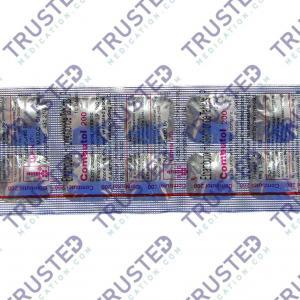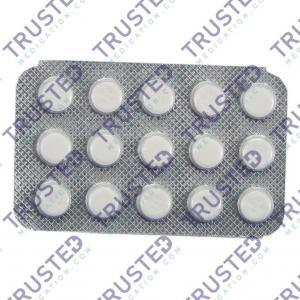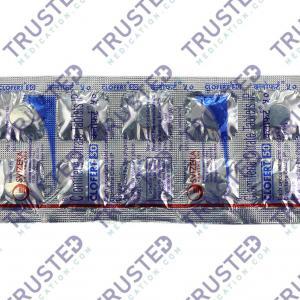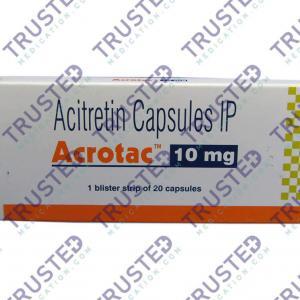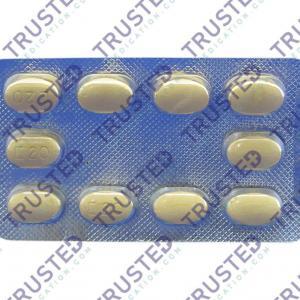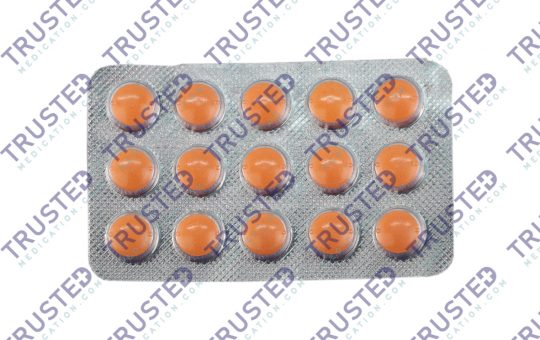
Donepezil is a medication that helps treat dementia (memory loss and mental changes) as a result of mild, moderate, or severe Alzheimer’s disease. It’s been approved by Food and Drug Administration for medical use in the US since 1996. It’s one of the most prescribed medications in the US. However, Donepezil won’t cure Alzheimer’s disease. It only helps slow down the progression of the disease. This drug helps improve awareness, memory, and the ability of patients with Alzheimer’s disease to function.
Alzheimer’s disease is a progressive disorder that causes the brain cells to degenerate and eventually die. It’s the most common type of dementia- a continuous decline in behavior, thinking and social skills that disrupts the patient’s ability to function well. Alzheimer’s disease affects over half of all patients with dementia. It tends to progress, deteriorate and lead to death within 7 to 10 years. The progress of this disease varies from individual. It may progress slowly over many years for some patients while it may progress rapidly for others. Early signs of this disease includes forgetting recent conversations or events. As it progresses, patients with this disease will develop severe memory impairment and lose the ability to carry out the daily task. There is no current cure for Alzheimer’s disease but there are medications available to help slow down its progression.
Donepezil is a type of acetylcholinesterase inhibitor. It is an enzyme blocker that works by breaking down the neurotransmitter in the brain called acetylcholine. Neurotransmitters are involved in transmitting messages between nerve cells. The nerve cells in the brain continuously release acetylcholine. In Alzheimer’s disease, the level of acetylcholine is lower than the normal due to the degeneration of the brain cells.
Donepezil increases the acetylcholine level in the brain by preventing the action of acetylcholinesterase. Preventing the action of this enzyme slows down the breakdown of acetylcholine that is being released from the remaining undamaged nerve cells in the brain. As a result, the level of acetylcholine is increased which helps improve the cognitive process of learning, thinking , memory and also improving dementia symptoms and every function of patients with Alzheimer’s disease.
When and How to Use Donepezil
Your dose is based on your condition and the severity of your condition. Donepezil comes in a tablet form that you need to take by mouth.
Mild to moderate Alzheimer’s disease: The typical starting dose is 5 mg tablet once a day. Take it before bedtime to reduce the risk of side effects such as nausea and diarrhea. After four to six weeks, your doctor will increase your dose to 10 mg a day taken before bedtime.
Moderate to severe Alzheimer’s disease: The initial dose is 5 mg a day before bedtime. After 4 to 6 weeks, your doctor may increase your dose to 10 mg a day before bedtime. After 3 months of treatment, your doctor will increase your dose again to 23 mg per day before bedtime. Do not split the tablet or chew the tablet.
Take your medication exactly as prescribed by your physician. You may take it with or without food. Swallow the tablet whole with plenty of water. For a missed dose, leave out that dose and take your next dose the following bedtime. If you failed to take the tablet for a week or more, contact your physician before you take any more medication. Do not increase your dose without informing your doctor. If you take too much, you may experience severe nausea, vomiting, low blood pressure, seizures, trouble breathing, sweating and muscle weakness. Donepezil is Available here.
What to know before taking Donepezil
- Use this medication with care if you have:
- Liver problems
- History of peptic ulcer
- Difficulty passing urine
- Parkinson’s disease
- Heart problems such as a heart block or sick sinus syndromes
- Are on long-term treatment of NSAID or non-steroidal anti-inflammatory drugs
- Epilepsy
- Are taking antipsychotic medications
- Chronic pulmonary obstructive disease or COPD
- Do not use Donepezil among patients who are:
- Pregnant, unless necessary
- Breastfeeding
- Allergic to any of its ingredients
- Donepezil may cause dizziness, fatigue and muscle cramps especially during the initial time of treatment. As a result, it may reduce a patient’s ability to perform hazardous activities safely.
- In case of serious side effects stop using the medication and consult your doctor right away.
- Donepezil can slow down the heart rate. This can be enhanced if taken with other medications can slow down the heartbeat. If this happens, seek medical help right away.
- Donepezil can increase your stomach ulcer. Patients with ulcers are at high risk of developing stomach bleeding.
Possible Side Effects of Donepezil
Donepezil may cause unwanted side effects that may affect individuals in different ways. The following side effects may occur as your body adjusts to the drug:
- Nausea and vomiting
- Loss of appetite
- Weight loss
- Dizziness
- Drowsiness
- Muscle cramps
- Abnormal movements of the legs, hands, neck, face and tongue
- Trouble sleeping
- Weakness
- Seizures
- Bleeding in the stomach or intestines or ulceration
The side effects above usually last for 1 to 3 weeks. If any of the side effects become worse, call your doctor right away. Serious side effects are:
- Severe stomach or abdominal pain
- Fainting
- Trouble urinating
- Irregular heartbeat
- Liver problems with signs like vomit that looks like the coffee ground, black stool, yellowing of the skin
A very serious side effect that needs medical attention right away are:
- Allergic reactions with symptoms like swelling of the face, throat and tongue, itching, rash, trouble breathing and severe dizziness.
Getting the Best Result from Donepezil
- Use this medication regularly to get the most benefit from it. It may take several weeks before you’ll get the full benefits. Do not stop taking your medication unless you are told to do so. If your condition worse, inform your doctor.
- Do not take this medication along with other drugs that increase the activity of acetylcholine like medications for urinary retention, myasthenia gravis and other anti-Alzheimer’s disease drug.
- Avoid taking anticholinergic medications like medicines for Parkinson’s diseases, antispasmodic for gut disorders, medications for urinary incontinence.


